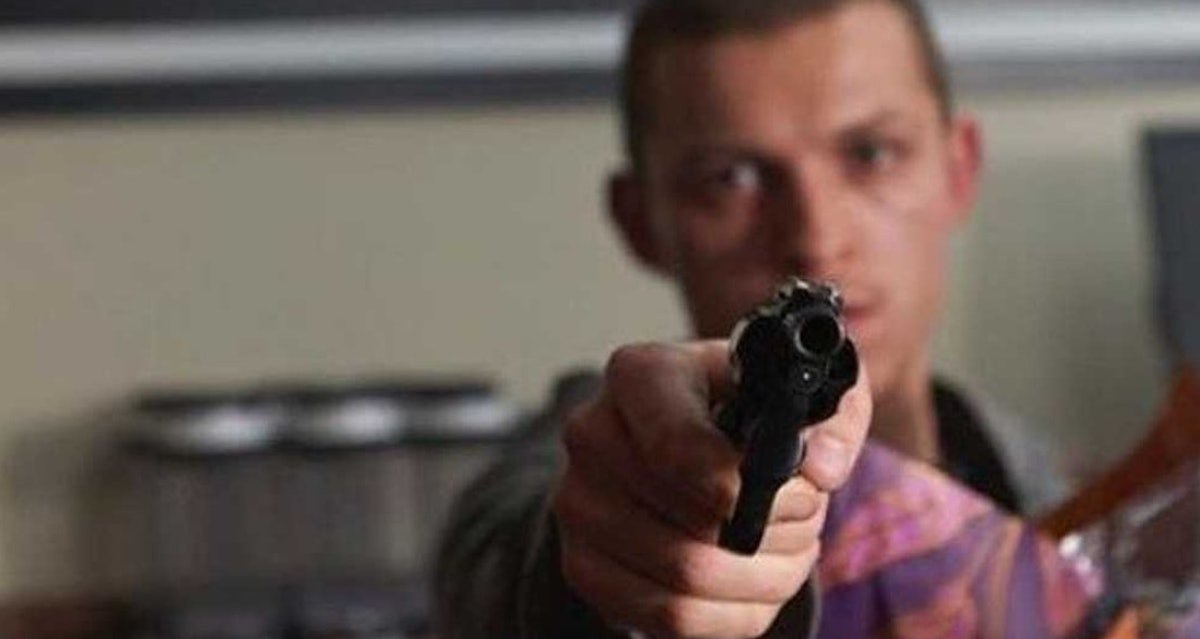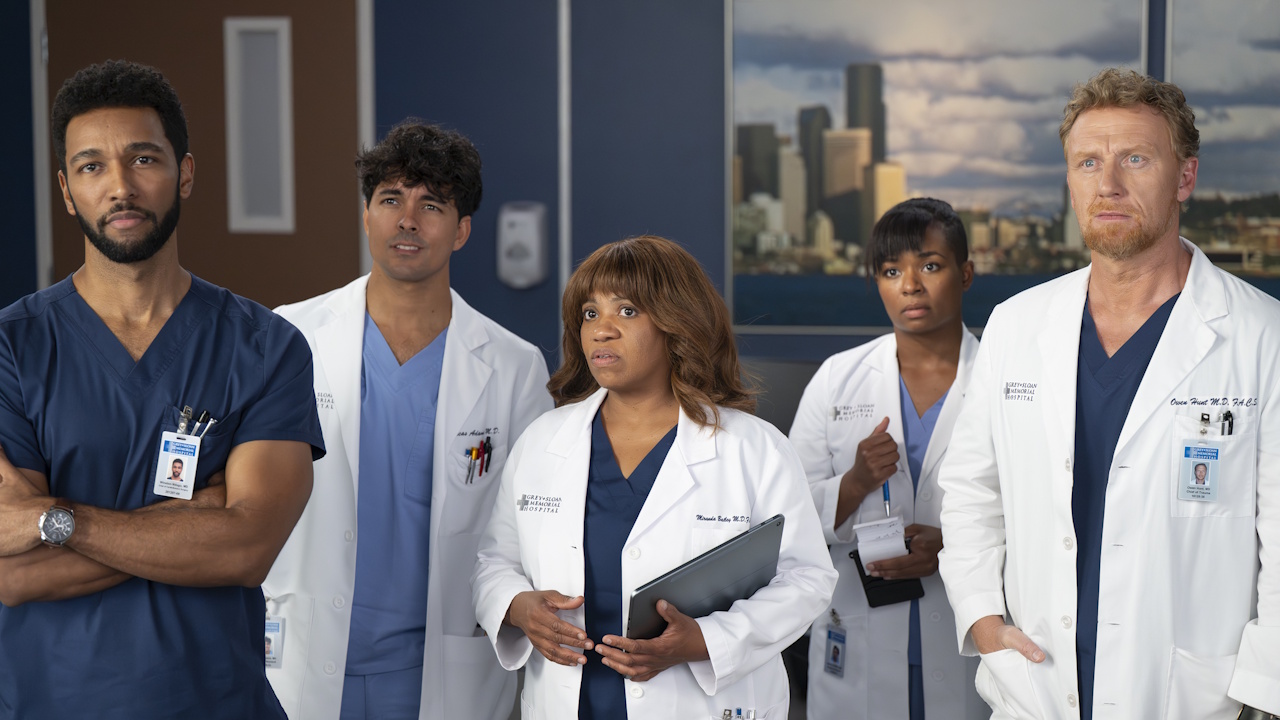After soaring to capture the superhero exploits of Spider-Man, Tom Holland and his Avengers collaborators Joe and Anthony Russo shift gears to tell a grounded, somber, cynical and heartbreaking coming-of-age that’s sadly every bit as relatable as the Marvel movies are fantastical.
Cherry might be the anti-Marvel movie… or, at least, the anti-Peter Parker movie. Holland naturally is capable of far more than playing comic-book characters (catch up with The Impossible, The Lost City of Z and The Devil All The Time for proof). But it’s easy to understand why the Russos leaned on Holland to play their lead role in this difficult adaptation, because the actor’s now known for making exaggerated characters seem believable. The end result is a tour de force for Holland, his courageous co-star Ciara Bravo, and for the Russos, who break free from the invisible limitations that success in the comic-book genre can apply.
Cherry shows Tom Holland’s impressive range, while introducing the equally compelling Ciara Bravo.
Adapted from Nico Walker’s autobiographical book, Cherry covers a daunting amount of territory as it follows a wayward soul (Tom Holland) through a tumultuous 15-year span of his still-developing life. And the film rests squarely on the shoulders of Holland and Ciara Bravo (Big Time Rush, Hulu’s A Teacher), who make up a Sid & Nancy-esque duo gripping on to a drug-fueled rollercoaster ride of the heart.
And each step of this harrowing journey resonates with clarity because Holland and Bravo bring a credibility that looks as if it stems from experience, when really it’s just the immersion of their preparation. The performances strike us as shockingly physical -- notching the necessary weight loss to play junkies, as an example -- but their tender chemistry as lovelorn college sweethearts hits the hardest, especially on a second Cherry viewing. Once you know all of the difficult places that “Cherry” and Emily (Bravo) descend to, a rewatch reminds you how fresh-faced, innocent and unaware the characters are, and the actors help sell every heartbreaking misstep.
Cherry could have felt episodic, but the Russos find a flow.
The story of Tom Holland’s nameless character (eventually referred to as “Cherry”) breaks up into recognizable chapters covering life-shaping moments in his rough existence. Because we begin with a later experience, where Cherry is robbing banks to pay off debt incurred by his drug habit, we know we’re going to end up there eventually. But the film pit stops at other defining periods, announcing them with bold title cards and assisted by a busted narration that betrays the ache in Holland’s own heart.
This structure could lead to Cherry feeling episodic, with even more of a danger coming to that because Joe and Anthony Russo came up on episodic storytelling on smart sitcoms like Community and Happy Endings. When that happens, and a larger story falls into a “Then this happened, then this happened” pattern, the audience can get knocked out of the movie’s overall momentum. But the Russos figure out how to use musical tracks, an original Henry Jackman score, and a blended but bold color palette to Newton Thomas Sigel’s cinematography to create continuity and flow to both Cherry and Emily’s journey. It’s a series of technical choices that aid in the emotional investment, and they all keep you engaged in the harrowing ride that is this movie.
There’s a LOT of movie in Cherry. Almost too much movie.
In an effort to help make each chapter or segment stand apart from the others, the Russos brothers almost treat those moments in Cherry as experiments in separate genres, so while Cherry feels cohesive, it also immerses you in a film-school approach to such recognizable visual aesthetics as “the hazy first love,” “the twitchy drug opera,” or “the pulse-racing bank robbery.” These are all moments in Cherry and Emily’s journey, but they could have easily stood alone as individual films of their own, with additional time and development. Cherry’s military enrollment and Boot Camp hell really could be a standalone detour story, with Holland and the Russos fully embracing everything that comes with a young, wayward man attempting to find purpose in military service, but enduring torture and earning only PTSD for his troubles.
Your Daily Blend of Entertainment News
The segments that feel the most personal involve the drug addiction that claims both Emily and Cherry, and it’s here that the Russos seem to find the most emotional investment (they have talked about how the opioid crisis that is overwhelming their home city of Cleveland, Ohio has been an inspiration for tackling this story). And by the time that you get there, you might feel like you have lived several tough existences alongside Holland’s lead character. It’s a good problem to have, that Cherry feels that authentic. You just might want to mentally prepare yourself for the weight of the baggage, because it’ll land on you like a sack of bricks.

Sean O’Connell is a journalist and CinemaBlend’s Managing Editor. Having been with the site since 2011, Sean interviewed myriad directors, actors and producers, and created ReelBlend, which he proudly cohosts with Jake Hamilton and Kevin McCarthy. And he's the author of RELEASE THE SNYDER CUT, the Spider-Man history book WITH GREAT POWER, and an upcoming book about Bruce Willis.

